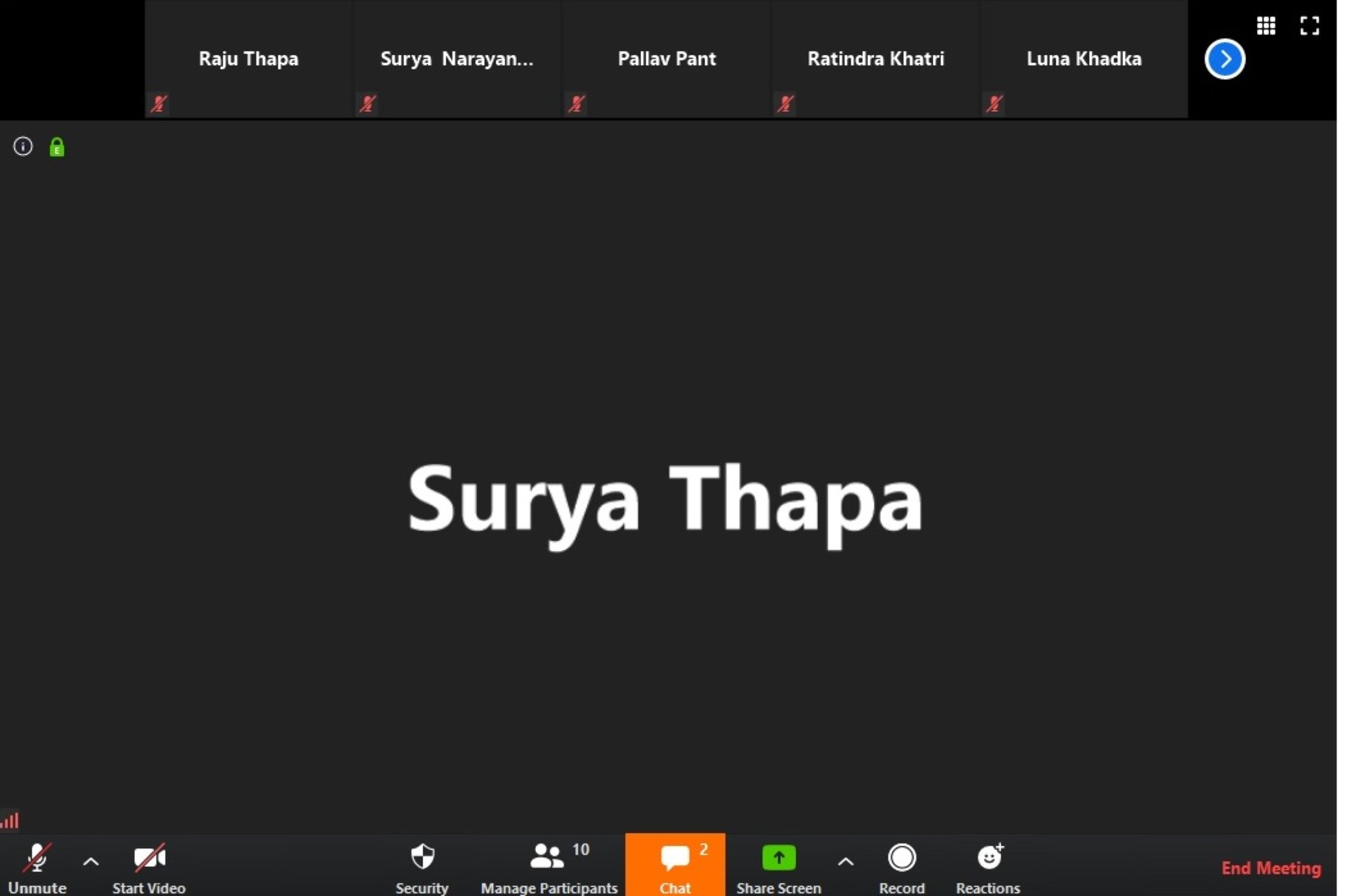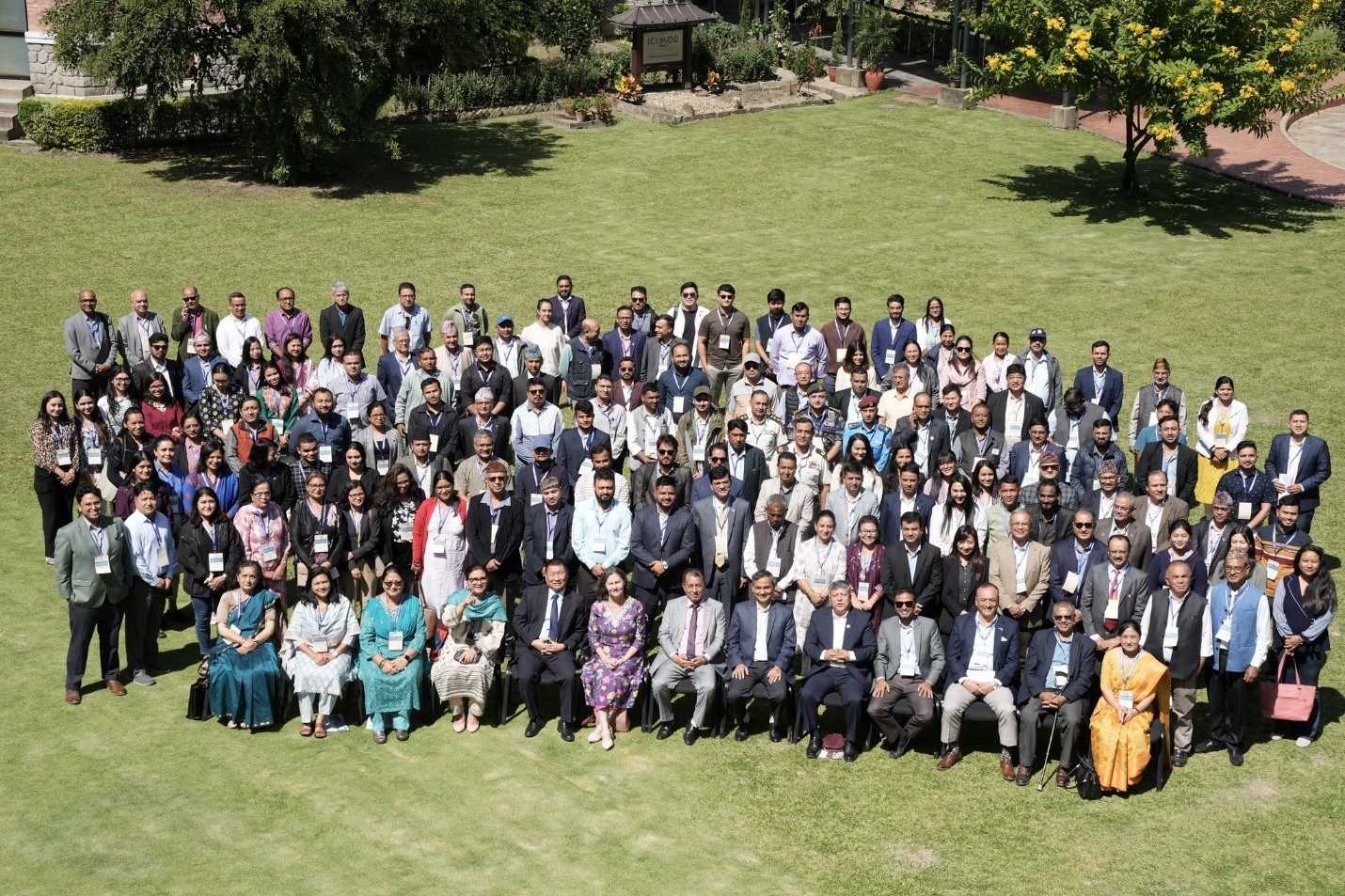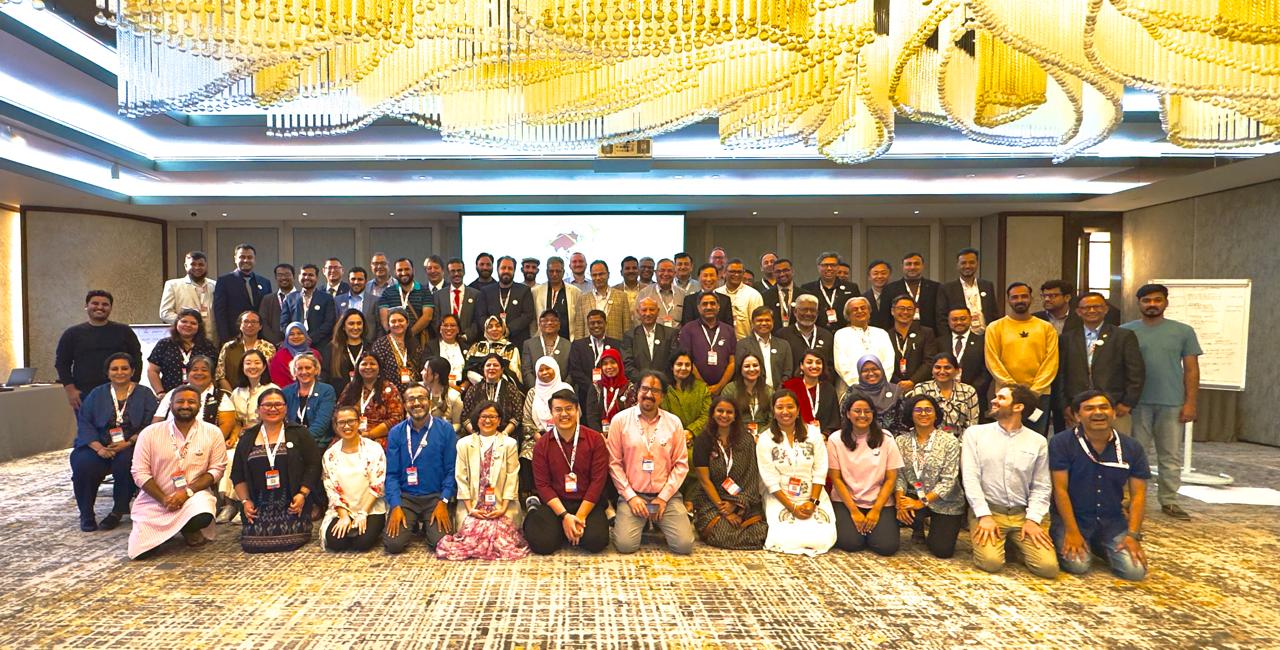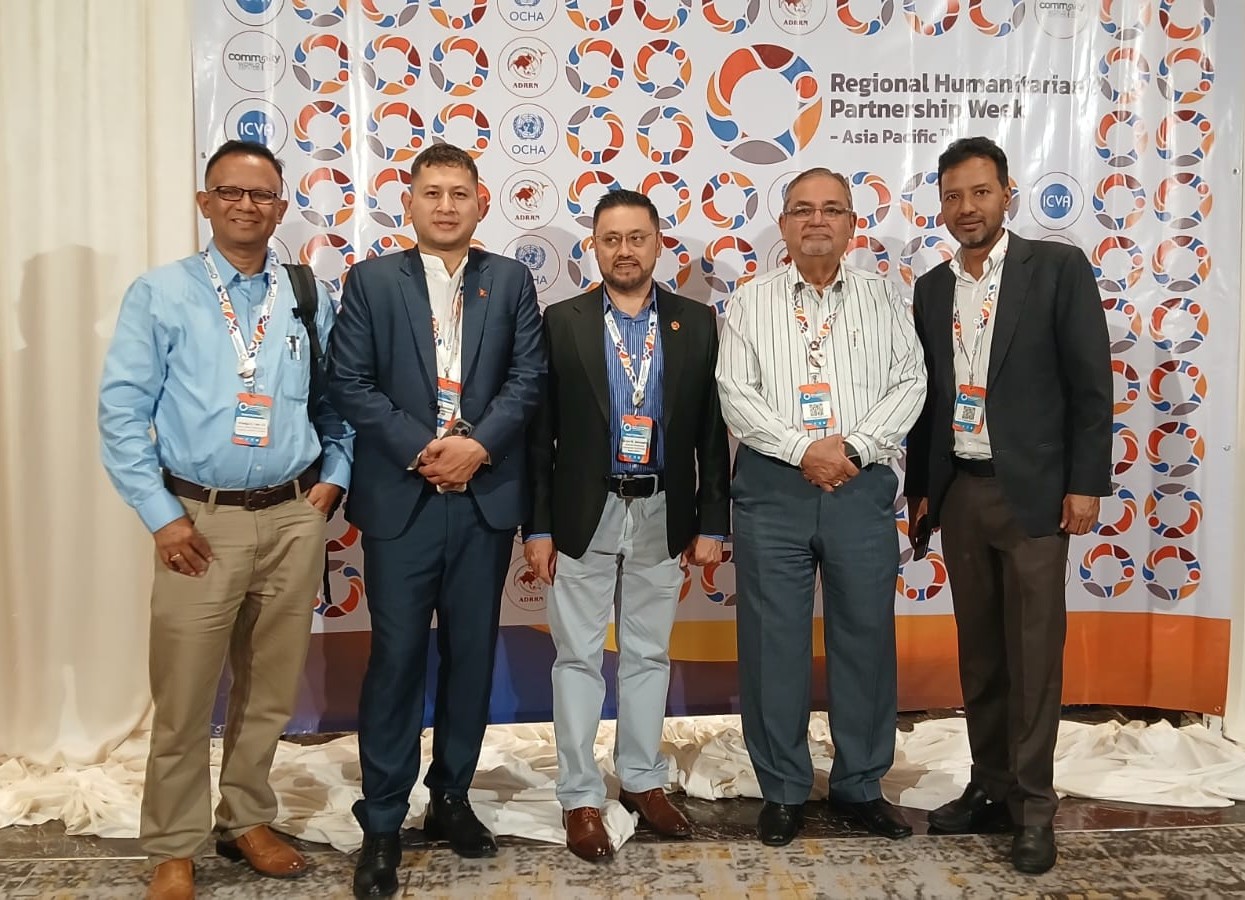DPNet-Nepal Advisers Virtual Meeting

DPNet-Nepal Advisers Virtual Meeting
23rd April 2020, Advisers meeting was organized by DPNet-Nepal to discuss the role of the network in COVID-19 and important issues. The technical advisers and Executive committee members and Secretariat staff were present in the meeting. Due to the lockdown, the meeting was virtually organized through online media, zoom. Mr. Surya Bahadur Thapa welcomed the participants and initiated the meeting.
Mr. Raju Thapa General Secretary of DPNet-Nepal shared the updates about the initiatives of DPNet-Nepal regarding the COVID-19. He stated that DPNet has been collecting and disseminating information related to COVID-19, Prepared and disseminated ‘Pandemic Contingency Plan’ and ‘Work From Home Guideline’, Preparation of IEC materials-translated and disseminated the Nepali version of 3 documents Corona Virus Sphere’s Guidance and applying humanitarian standards in COVID-19 response.
Mr. Surya Bahadur Thapa, Chairperson of DPNet-Nepal shared the updates about the regular sharing and coordination meeting with various civil society networks and Federation, National Planning Commission, guideline developed to mobilize I/ NGOs during COVID 19 and in the time of Disaster on behalf of Civil Society Networks and handover to Social Welfare Minister. He also shared about the NDRRMA request to share the information about the preparedness for seasonal hazards. He also shared the suggestions provided to the advisers of Prime Minister, Deputy Prime Minister, and Health Minister regarding the coordination and mobilization of Provincial and Local Government for the management of people walking long distances without food and water along with their infants. The situation may get worst if people become aggressive. After that, the Valley Municipality Coordination Committee meeting was organized and the public announcement was made along with the distribution of food during crisis and toll-free number requesting people to stay at their own place.
Major Discussions
- Risk assessment mapping to identify the high and low-risk zone district, on the basis of that, the strictness of lockdown can be made a little bit loose for low-risk districts to initiate the economic recovery activities by developing SOPs to be strictly followed, while leaving the country border closed. How can we move ahead for early recovery considering the economic impact we need to identify the pocket area and the Government should also have the concrete plan.
- It’s high time to think about the multi-hazards specifically the seasonal hazards like fire and then the monsoon preparedness plan along with the COVID-19. We have exhausted almost all resources for COVID-19 and there is a high need for preparedness for the coming monsoon floods and landslides. Flood will also affect Terai districts which are bordering with India where strict lockdown needs to be continued.
- It seems like the country is more focused on controlling infectious diseases only. The humanitarian principles (human rights and fundamental rights during crisis management) are overlooked while enforcing lockdown. This includes the rights of citizens who want to come home from abroad including India. Human right and fundamental right cannot be ruined in any crisis situation, rather the objectives of crisis management is to protect the rights of the people.
- There is no massive case of COVID-19 in Nepal, which indicates that we are in control, but that may be due to limited tests indicating there may be a high number of cases. Screening is on an ad-hoc basis. How can we cover the maximum population in screening? At any point of time, it may be extreme. COVID will have long term impact so we need to have precautions for a long time.
- There were daily 7 flights from January before lockdown from China, the 1st infected was form China, so we cannot overlook the risk of COVID 19 infection, so if the lockdown down is loose, there are high chances that there may be exponential growth in a number of patients.
- The Government has not responded for humanitarian appeal, we are not clear whether the government is seeking support from CSO’s/NGO’s or not. If the government is seeking support, it should be clearly spelled out in which way and sector CSO’s/NGOs can support and mobilize.
- The major areas of support from NGO could be
- Tracing and tracking in coordination with local government
- Awareness-raising
- Relief distribution
- Dialogue with donors and UN agencies for working with local organizations for COVID-19
- According to the infectious disease Act 2020, the high-level committee was formed. In the COVID crisis management center, NDRRMA CEO is just given the role of the adviser in an organogram. NDRRMA is given the role of traditional disaster management from the National council meeting.
- The security force has built quarantine beds for 4000 people. CCMC is working well but couldn’t include people from the humanitarian sector. Clusters could not work well.
- Logistic cluster is activated and WFP has been managing medical logistic support in different places, including Karnali. WFP can provide truck free of cost for logistic support supplies.
- Physical distancing is quite challenging of a person with disabilities, as they require the support of other people in mobility and accessibility as their need. Also, the hassle in relief distribution has affected persons with a disability. So, the lens of disability should be used for addressing the issues of a person with a disability considering the COVID 19.
Closing and Decisions: The Chairperson of DPNet-Nepal thanked all advisers for their participation and suggestions regarding the role of DPNet-Nepal in COVID-19. The following decisions were made at the end of the meeting.
- DPNet-Nepal will explore to facilitate the expectation of Government from CSO’s and NGOs for the preparedness, response, and coordination for the Pandemic COVID-19 with the NDRRMA and concerned authority. DPNet-Nepal will organize the virtual meeting with NDRRMA, concerned government authority, and DRR professionals.
- DPNet-Nepal will facilitate to organize experience sharing meeting by inviting the resource person from MoHP and other organizations and disseminate the information.
- The network will facilitate to develop the programming plan for multi-hazard scenarios along with the COVID 19 in coordination with advisers and technical advisers.
- Advisers will share their suggestions regarding the current scenario in bullet point to be shared with Government agencies











